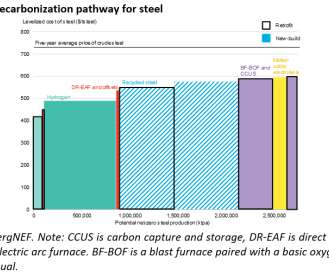BNEF: steel industry set to pivot to hydrogen in green push; additional $278B for clean capacity and retrofits
Green Car Congress
DECEMBER 1, 2021
Steel production could be made with almost no carbon emissions through $278 billion of extra investment by 2050, according to a new report from research firm BloombergNEF (BNEF). Steel is responsible for around 7% of man-made greenhouse gas emissions every year and is one of the world’s most polluting industries.












Let's personalize your content